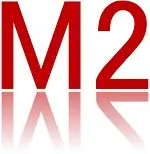PMMA used in CNC machining
PMMA Used in CNC Machining
CNC machining is a popular manufacturing process that uses computer-controlled machines to remove material from a solid block to create a finished product. Being a transparent thermoplastic material, PMMA is widely used in CNC machining in various industries due to its unique properties as below.
- Transparency: PMMA has excellent optical clarity and transparency, making it an ideal material for applications that require high levels of light transmission. It has a refractive index of 1.49, which is very close to that of glass, and it does not yellow or become hazy over time like some other plastics.
- High tensile strength: PMMA has a high tensile strength, which makes it resistant to impact and fracture. Its tensile strength is higher than that of many other plastics, including polycarbonate and PVC, and it can withstand significant stress without cracking or breaking.
- Chemical resistance: PMMA is highly resistant to many chemicals, including acids, alkalis, and solvents. It is unaffected by most common cleaning agents and disinfectants, making it ideal for use in medical and laboratory settings.
- Machinability: PMMA is easy to machine using CNC machining processes. It has a low melting point and does not require high temperatures or pressures to be formed into complex shapes. It can be drilled, turned, milled, and engraved with ease, making it ideal for creating intricate designs and components.
- UV resistance: PMMA is highly resistant to UV radiation, which means that it does not yellow or become brittle when exposed to sunlight. This property makes it ideal for outdoor applications, such as signs and lighting fixtures.
- Water resistance: PMMA is highly resistant to water and moisture, which makes it ideal for applications that require protection from moisture or humidity. It does not absorb water, which means that it will not swell or deform when exposed to moisture.

PMMA for CNC Machining
Benefits of PMMA used in CNC machining
- Easy to machine: PMMA is easy to machine, which makes it ideal for CNC machining processes. It can be easily cut, drilled, milled, and engraved to create complex shapes and designs. This property allows for the creation of intricate parts and components that are difficult to achieve with other materials.
- High strength and durability: PMMA has high tensile strength and is durable, making it ideal for applications that require impact resistance. Its strength and durability make it resistant to breakage, chipping, and cracking, which makes it a reliable material for various applications.
- Chemical resistance: PMMA is resistant to many chemicals, which makes it suitable for use in harsh environments. It is resistant to acids, alkalis, and solvents, which makes it an ideal material for applications in the chemical and medical industries.
- Transparency: PMMA is highly transparent, which makes it ideal for applications that require optical clarity. Its transparency and optical quality make it an ideal material for use in lenses, displays, and lighting fixtures. It also has a high refractive index, which means that it can be used to create lenses that are thinner and lighter than glass lenses.
- Easy to fabricate: PMMA is easy to fabricate, which means that it can be molded, extruded, and thermoformed into various shapes and sizes. This property allows for the creation of custom parts and components that are tailored to specific applications.
- Lightweight: PMMA is lightweight, which makes it ideal for applications that require a lightweight material. Its low density makes it easy to handle and transport, which can reduce production costs and improve efficiency.
- Cost-effective: PMMA is a cost-effective alternative to glass and other materials that require high production costs. Its ease of fabrication and low production costs make it an attractive option for various applications.
Applications of PMMA Used in CNC Machining
PMMA is widely used in various industries for CNC machining applications. Some of the common applications of PMMA used in CNC machining include:
- Display cases: PMMA is commonly used to create display cases for museums, galleries, and retail stores. Its transparency and impact resistance make it ideal for protecting valuable items.
- Signs: PMMA is commonly used to create signs for businesses and public spaces. Its transparency and durability make it ideal for outdoor use.
- Lenses: PMMA is commonly used to create lenses for cameras, eyewear, and other optical devices. Its transparency and optical clarity make it ideal for these applications.
- Lighting fixtures: PMMA is commonly used to create lighting fixtures such as light covers and diffusers. Its transparency and machinability make it ideal for creating complex shapes and designs. PMMA is widely used in custom led lighting manufacturing.
- Medical devices: PMMA is commonly used in the medical industry to create devices such as surgical instruments, medical implants, and diagnostic equipment. Its chemical resistance and biocompatibility make it ideal for these applications.
PMMA is an ideal choice for CNC machining due to its unique properties. Its transparency, high strength, and chemical resistance make it suitable for various applications in different industries. It is easy to machine, making it ideal for creating complex shapes and designs. If you are looking for a material for your CNC machining project, consider using PMMA for its many benefits.
Contact Us









